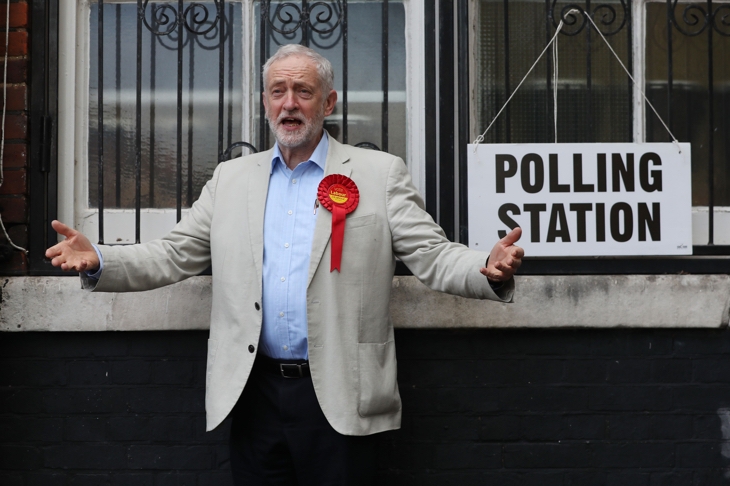If you want to know how last night was for the Labour Party, you need to look no further than the statement that Jeremy Corbyn has just released on the results. It is not a celebratory comment on Labour’s spectacular night, but a defensive one, describing the local elections as a ‘solid set of results’. He adds:
‘In a sign of how worried they are about Labour’s advance, the Tories talked up our chances to unrealistic levels, especially in London. The results show they’re right to be worried – we came within a whisker of winning Wandsworth for the first time in over 40 years.’
Corbyn is right, by the way: the Tories spent months telling anyone who was half listening that they were going to get trounced in these elections. That they were successful in this briefing war is shown by the fact that Corbyn has to address their predictions at all in this statement.
The night hasn’t been bad for Labour in terms of the gains it has made in key seats – the Tories will feel the loss of Trafford Council, for instance, particularly keenly – but when it comes to heaping political pressure on the Prime Minister, the Labour leader has once again come up short.
Will this change much in the way of Corbyn’s political authority? Doubtful: Labour haven’t done at all badly in these elections. There is a difference between political reality and political narratives. The Tories managed to set a narrative about wipe-out in these elections, while Labour focused on drawing activists into key wards by suggesting that the party was very close to taking local authorities such as Wandsworth. That the Tories didn’t believe their own hype about how bad the London results would be was clear at Prime Minister’s Questions this week when Theresa May herself referred to Wandsworth: a risky decision unless your data suggests you are going to hold that council.
The stakes were naturally much higher for May: unlike Corbyn, she doesn’t have much authority at all within her own party, as shown by the way members of the Brexit War Cabinet noisily stood up to her during the discussions on a customs partnership this week. Conversely, even a genuinely bad performance for Labour wouldn’t have had much of an effect on Corbyn. Unlike the Prime Minister, he doesn’t have a question mark over his longevity. When you talk to people around May, all of them struggle to make a prediction about the medium to long-term future without saying ‘of course, she might not be PM by then anyway’. When discussing Corbyn with his allies, the discussion is much more about how he plans to cement his authority over the critics in his party.







Comments